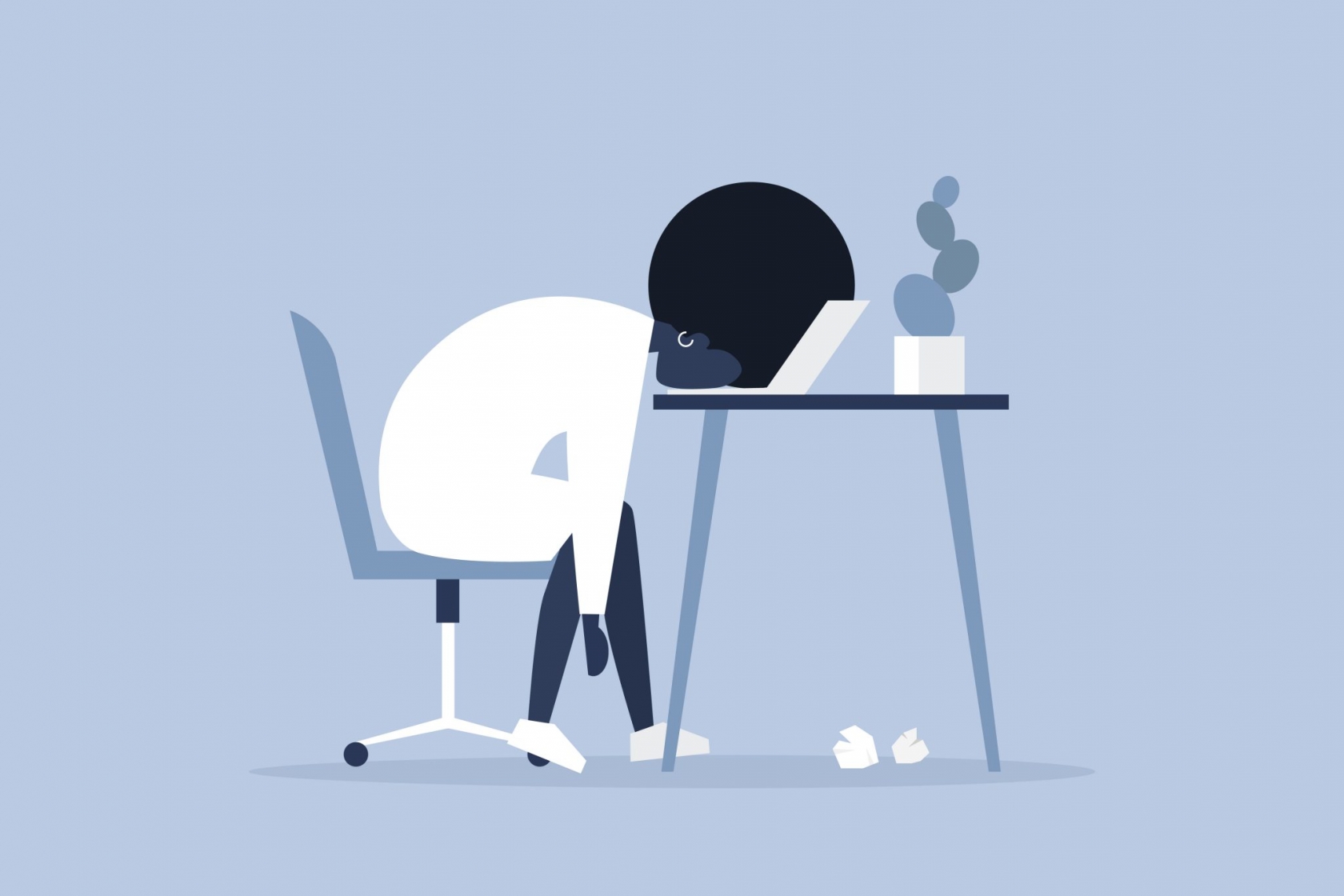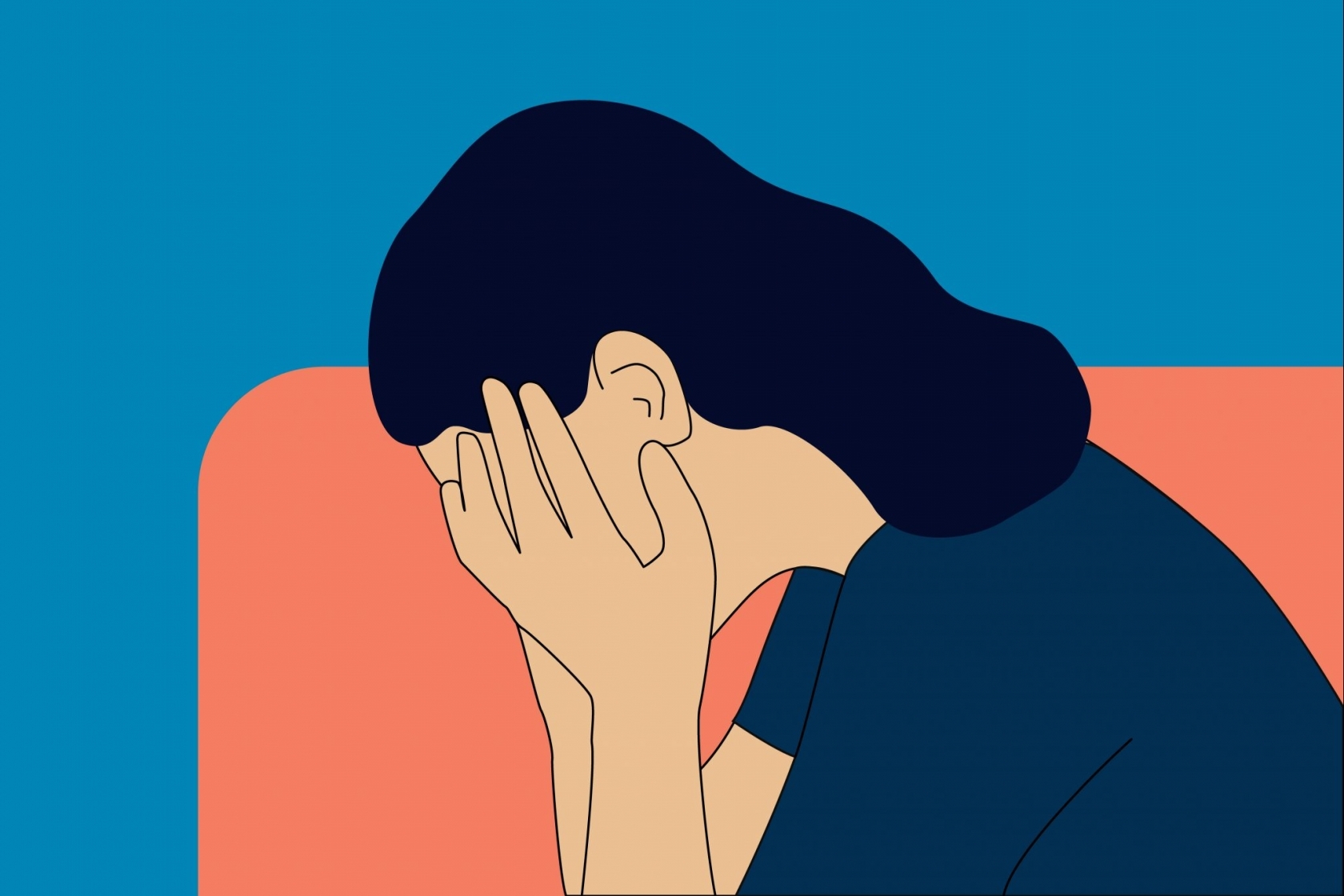Written by Lauren Geall
Struggling to deal with even the little problems life is throwing at you during the coronavirus lockdown? You’re not alone.
On a normal day, most of us are able to cope with small inconveniences and upsets. Dinner recipe doesn’t turn out as planned? Just order takeaway. Spill your coffee on the way to work? Laugh it off with your colleagues when you arrive. Shower head breaks? Leave it be.
But when we’re feeling overwhelmed or stressed out, these little inconveniences start to seem like the worst thing in the world. The old adage “there’s no point crying over spilt milk” no longer applies; before you know it, you’re curled up in a ball on the floor sobbing about the Thai green curry ready meal which passed its use by date earlier than you’d thought.
A situation like the current coronavirus outbreak makes these stress-induced behaviours glaringly clear. We’re all experiencing heightened levels of anxiety and stress at the moment thanks to the 101 things we now have to worry about – and it’s making handling the day-to-day stresses of life pretty damn hard.
It’s an experience we’ve been talking about a lot recently at Stylist. Small issues we might have only briefly grumbled or sulked about before are now consuming a lot of our headspace.
“My shower is leaking, so I’m not allowed to use it. That’s nothing, really,” explains Stylist’s digital editor-at-large Kayleigh Dray. “People are literally dying, and I’m mad about my shower? I need to get over myself. But… I always feel so much more together after a singalong in a hot and steamy shower. I love being able to hop in and have a quick rinse after work. I love washing my hair like Nicole Scherzinger in the Herbal Essences advert, rather than crouched over the sink with a mug of hot water.
“I love it. And now I don’t have it anymore, and I am bereft. Honestly, I’m so First World Problems I could scream right now. WHAT IS WRONG WITH ME?”
Stylist’s digital fitness writer Chloe Gray also admits the small thing have been getting to her.
“Being dairy-free for six years, I know what I like: oat milk is great in flat whites but white americanos may only be made with soy. Don’t put either of those in porridge though: almond only. Therefore, my fridge is usually stocked up with more fake dairy produce than a vegan Instagrammer,” she explains. “However, my recent supermarket trip nearly ended very, very badly when I could only find coconut milk (ok on cereal, don’t come anywhere near my coffee).”
“I am aware that there are bigger problems in the world, but relying on the little joys like a big steaming mug of caffeine and the perfect bowl of porridge is the only thing getting me through right now, and imagining them any other way made me more upset than necessary.”
So what is it about stress that makes us totally unable to handle life’s little inconveniences? When so many bad things are happening in the world, why, out of all the problems and potential challenges being thrown at us, is it the little everyday things which are sending us over the edge?
“When we’re experiencing high levels of stress and anxiety, it’s common to find that small inconveniences such as a burnt dinner, broken hairdryer or frozen PC feel overwhelming,” explains Dr Meg Arroll, chartered psychologist on behalf of Healthspan.
“Even in relatively stable times before the coronavirus pandemic, we tended to worry about life’s little niggles – a survey commissioned by Healthspan found that 62% of respondents claimed their minds ran ‘a mile a minute’ and 83% felt like they had constant internal chatter.
“With the addition of the self-isolation restrictions due to the coronavirus, we have even more to think about now, so our minds are processing a higher cognitive load.”
According to Dr Arroll, when our minds are handling so much information, worry and general anxiety, they don’t have time to relax – meaning we end up sending our bodies into fight-or-flight mode.
“Our mental capacity is finite, therefore if we are constantly thinking about the coronavirus and what it means for our work, financial stability, family, health and what the world will look like once it’s under control, we have little space for a calming narrative.
“These negative and ruminative thought patterns can put us into fight-or-flight mode, make us hypervigilant and subject to mood swings, irritability and a cause a low tolerance for stress. Hence, when some small problem occurs, our ‘worry cup’ is already pretty full – so this can send us over the edge.”
When our “worry cup” overflows and we start to freak out over the smallest of things, it’s time to check in with ourselves, Dr Arroll explains.
“To prevent yourself from freaking out over the small things, it’s important to tackle the negative thought patterns that are running in the background. We can do this by limiting the amount of news we consume, resetting our mindset to the positive by looking at the lessons we can learn from this experience, keeping socially connected while adhering to physical distancing rules (via the phone, messaging and video conferencing) and paying attention to our physical health in terms of our nutrition, sleep and movement.”
Next time you find yourself freaking out about the smallest of issues or snapping at your housemate for making the tiniest noise, take the time to sit back and evaluate whether you’re actually annoyed, or whether you’re just stressed out.
There are very few empty “worry cups” in the world right now, so this is a feeling many of your friends and family members are probably dealing with. Just remember: whatever you’re experiencing right now (and however your mind is responding), you’ve got this.
Images: Getty
Source: Read Full Article


